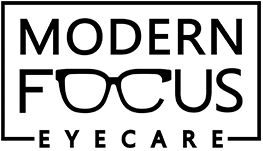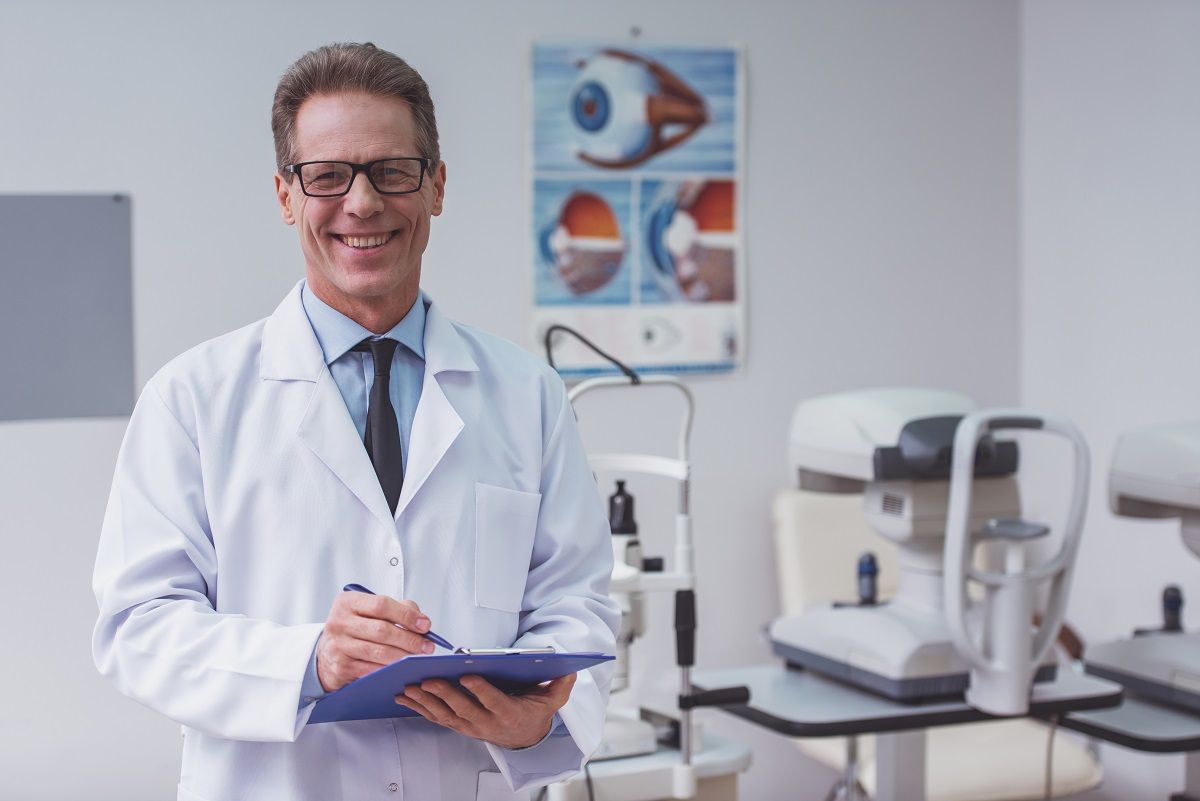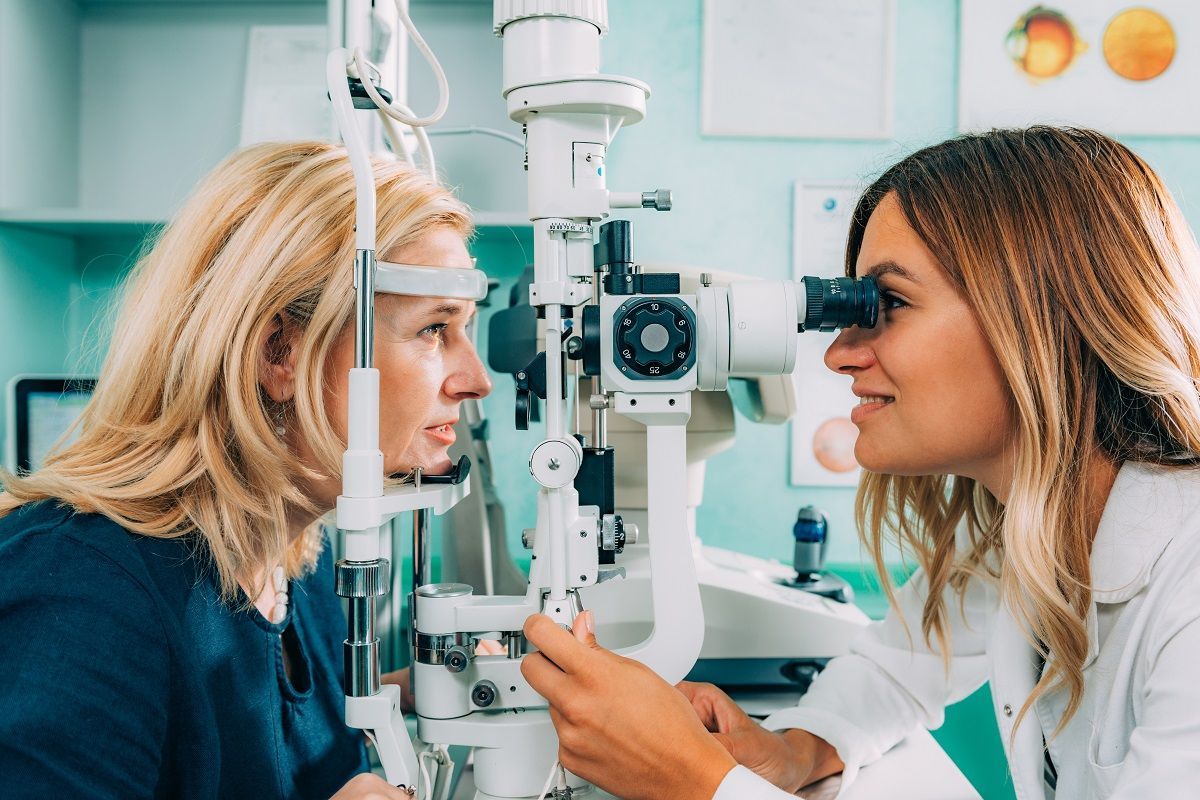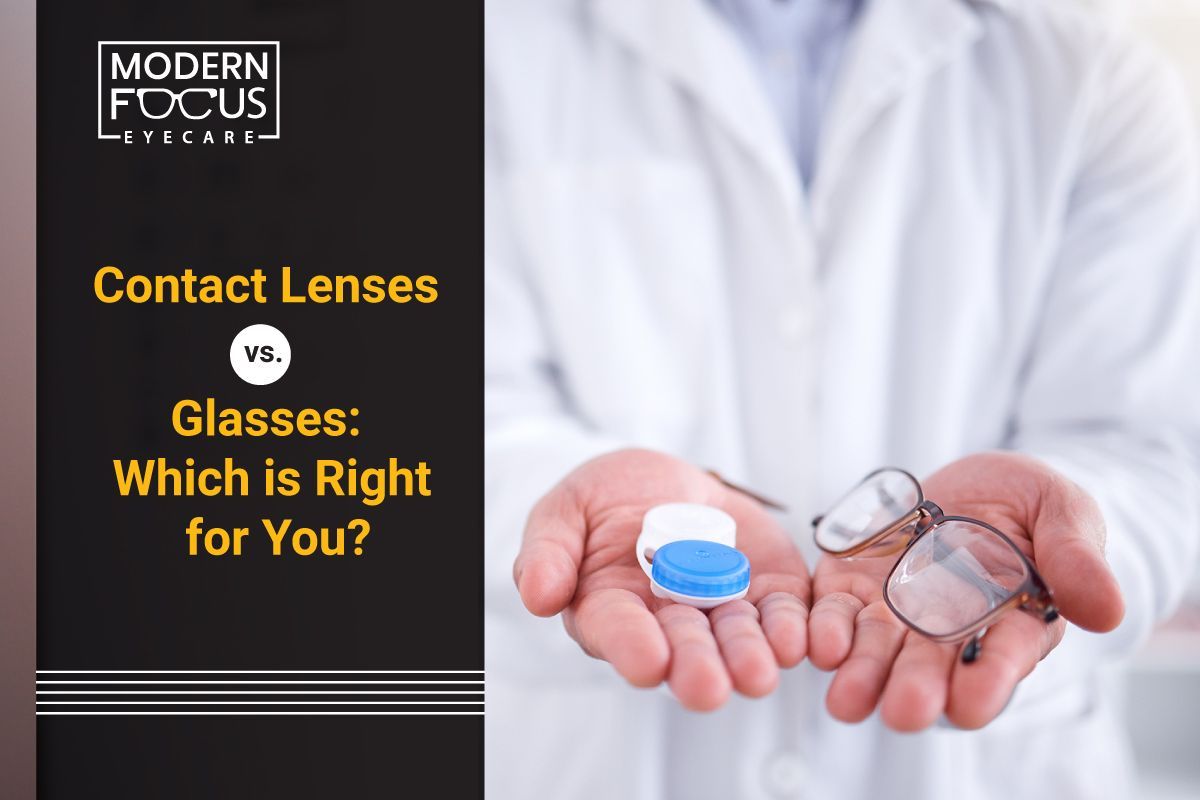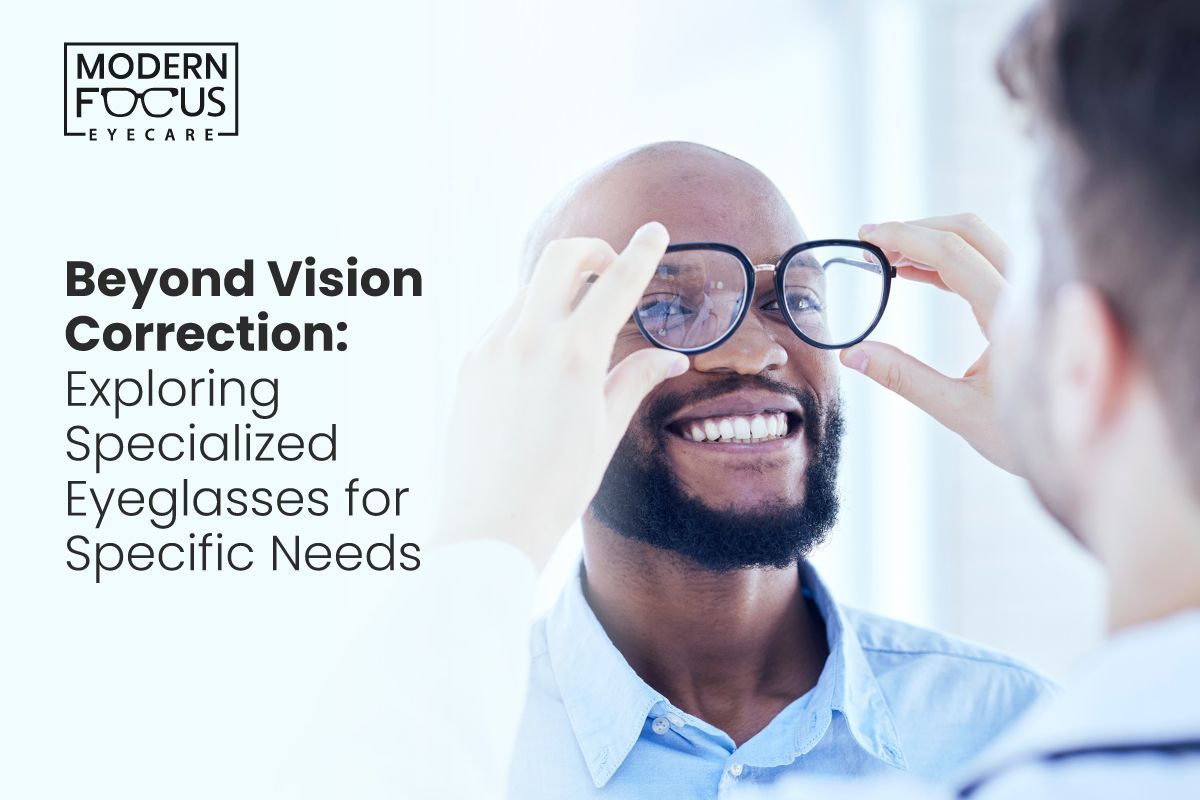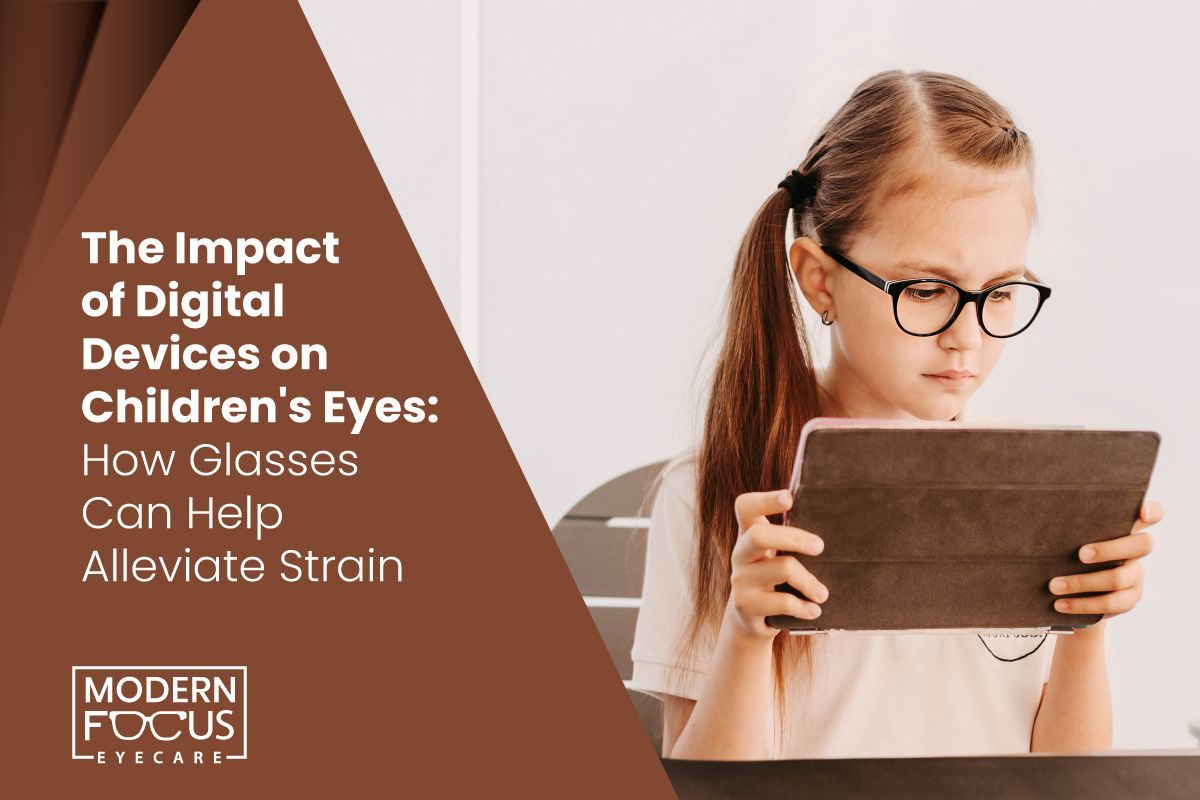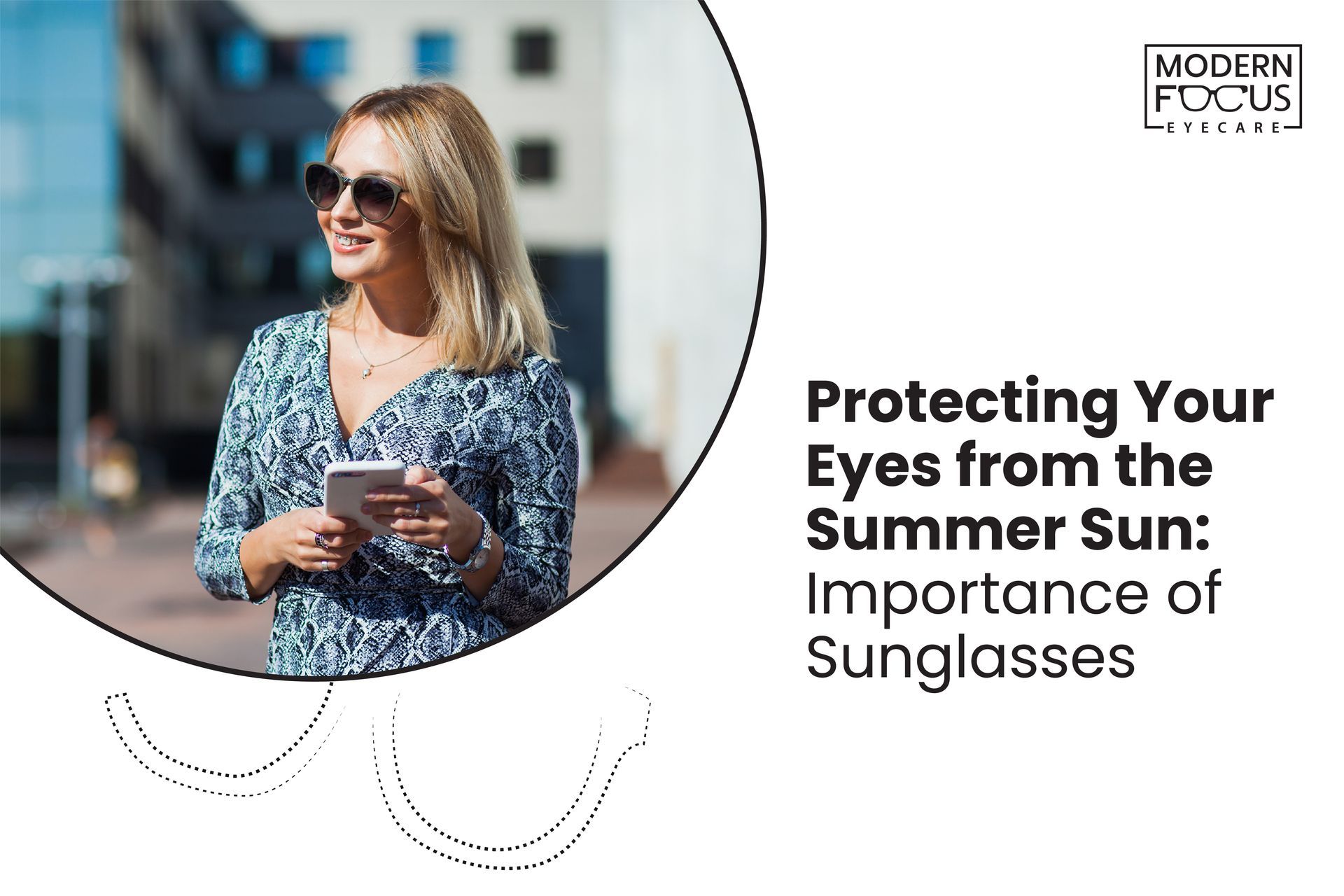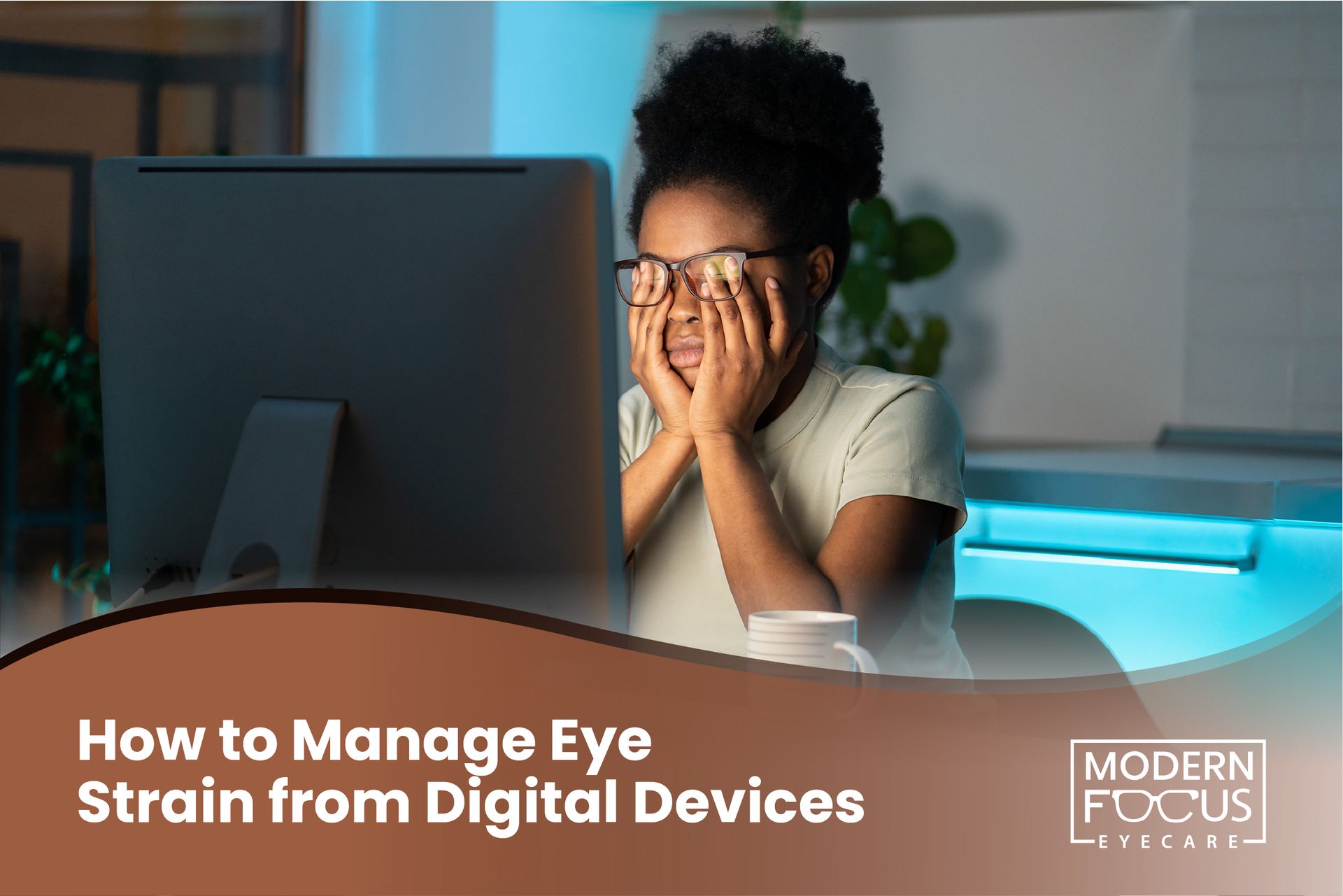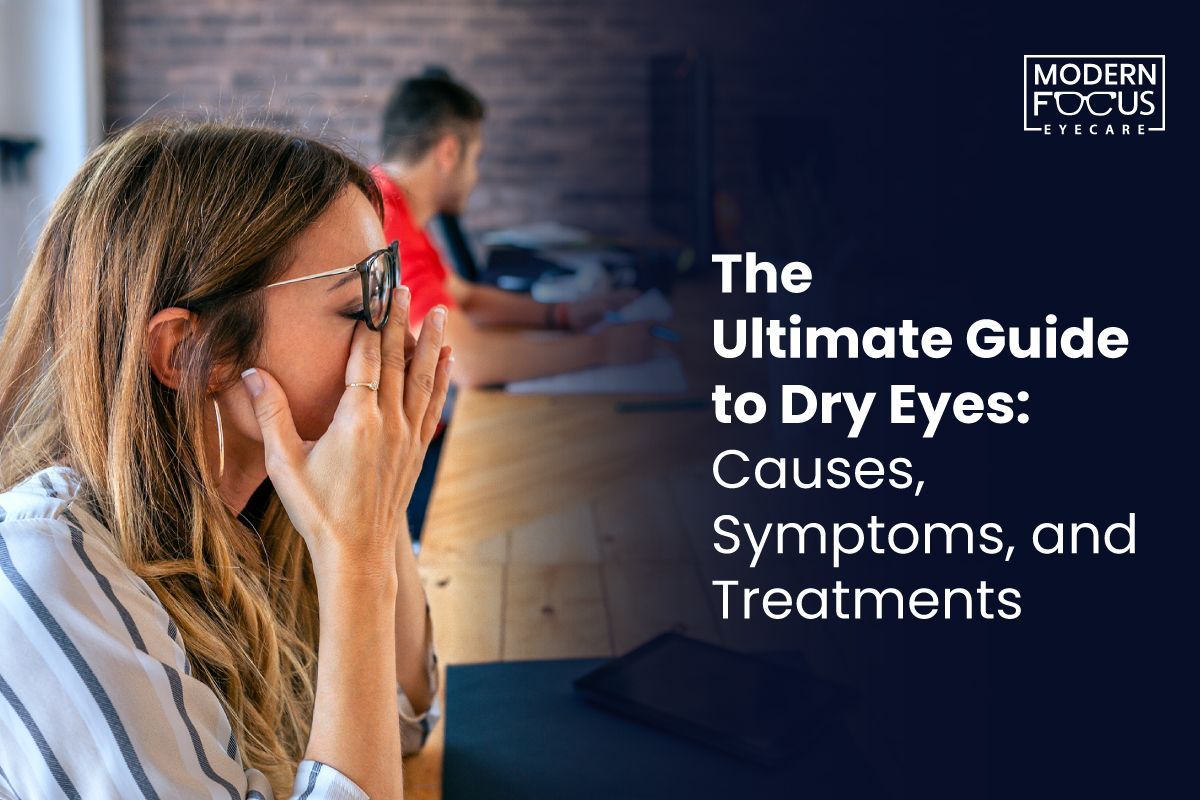The Role of Eye Exams in Preventing Ocular Diseases
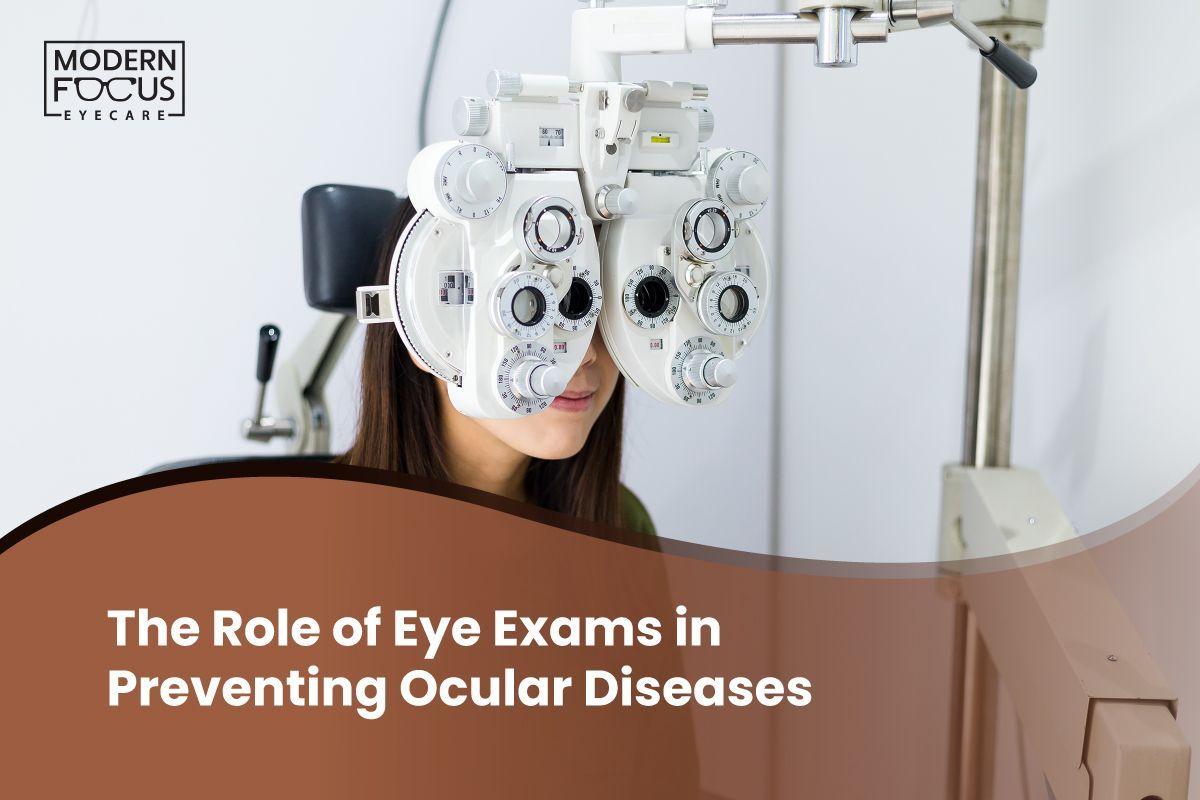
In today's digital age, we rely heavily on screens for work, entertainment, and communication. From smartphones to computers, we spend hours staring at screens daily, often neglecting our eyes' health. The importance of our sight cannot be overstated, and maintaining healthy vision is essential for a good quality of life. However, vision or eye problems can cause irreversible vision loss and other complications.
This blog aims to highlight the importance of eye exams in preventing ocular diseases.
What Are Eye Exams?
The World Health Organization (WHO) reports that at least 2.2 billion people worldwide experience near or distant vision impairment. The impairment could have been prevented or remains unaddressed in almost half of these cases.
A big part of avoiding vision problems is by getting your eyes checked.
Eye exams are thorough evaluations of both your vision and the health of your eyes. Optometrists or ophthalmologists who have received specialized training in eye care check both your vision and the health of your eyes during an eyesight check-up. They typically conduct a variety of tests and procedures to assess various aspects of your ocular health, including
- visual acuity
- eye movement
- eye pressure
- structure of your eye
Eye exams are crucial for identifying potential eye problems and maintaining optimal eye health.
What To Expect During an Eye Test
An eye test is a simple, painless procedure that usually takes approximately 30 minutes. You can expect the following during eye testing.
1. Firstly, your eye doctor will ask you some questions about your medical history and any current eye-related problems you may be experiencing. Your eye doctor may ask about your lifestyle, including your occupation and hobbies, as part of the evaluation to better understand how you use your eyes on a daily basis.
2. Next, the optometrist will conduct a series of tests to assess your vision, including reading an eye chart, testing your peripheral vision, and evaluating your color vision. They will also measure your prescription to determine whether you require glasses or contact lenses.
3. The optometrist will also check your eye's internal structure to see any signs of disease or damage. They may also test the pressure within your eyes to screen for glaucoma.
4. In some cases, the optometrist may dilate your pupils by putting drops into your eyes to get a closer view of your eye. This step may cause your vision to be temporarily blurred and make your eyes more sensitive to light.
5. Finally, the optometrist will discuss their findings with you and recommend any necessary treatment or follow-up appointments. If you require glasses or contact lenses, they will help you select the best option for your needs and provide a prescription.
Benefits of Eye Exams
Without regular eye exams, you may not notice the gradual changes in your eyesight until it becomes a problem that is more difficult to manage. Having regular eye exams is critical to preserve your vision and overall well-being. You can benefit from regular eye exams in the following ways.
Early Detection of Eye Problems
One of the primary benefits of eye exams is the early detection of eye problems. It includes conditions such as glaucoma, cataracts, and macular degeneration, which can cause vision loss if left untreated. Early detection and treatment can help prevent further damage and preserve your vision.
Detection of Other Health Issues
Eye exams can also reveal underlying health issues that may impact your vision. For example, diabetes can cause damage to the retina's blood vessels, resulting in vision problems. High blood pressure can also affect the blood vessels in the eye. By detecting these conditions early, you can seek treatment and manage the condition before it becomes more serious.
Improved Vision
Eye exams can also help improve your vision. By getting a new prescription for glasses or contact lenses, you can see more clearly and reduce eye strain. It can also improve your quality of life and make it easier to perform everyday tasks.
Prevention of Eye Strain and Headaches
Your eyes may strain and have headaches if you spend an extended time looking at screens or reading books. Regular eye exams can help identify the cause of these symptoms and provide solutions to reduce discomfort. These solutions may include recommendations for computer glasses, special lenses, or other vision aids.
Peace of Mind
Finally, regular eye exams can provide peace of mind. Knowing that your eyes are healthy and functioning properly can reduce anxiety and stress related to your vision. It can also help you stay on top of potential issues and take action before they become more serious.
When to Get Your Eyes Checked
The frequency of your eye examination will depend on your age, family history of eye problems, and overall health. Here are some guidelines for when to schedule an eye exam.
1. Children and Teens
Children and teens should have their eyes checked regularly, starting from infancy. The American Optometric Association recommends the first comprehensive eye exam between six to twelve months, and the other one between 3-5 years old before starting school. After that, children should have their eyes checked every two years. Children who wear glasses or have eye problems may need more frequent eye exams.
2. Adults
For adults, the frequency of eye exams depends on their age, overall health, and family history of eye problems. Here are some general guidelines:
- Individuals up to 39 years old should have their eyes checked every two to three years if they have no vision problems or risk factors.
- Adults aged 40 to 50s should have their eyes checked every two years.
- Seniors aged 60 and older should have their eyes checked annually.
People with risk factors for eye problems, for instance, diabetes or glaucoma, may need more frequent eye exams. Your eye doctor can provide personalized recommendations based on your individual needs.
3. Other Situations
Besides regular eye exams, there are other situations where you may need to have your eyes checked asap. These include the following:
- Changes in vision, such as distorted or blurry vision, double vision, or trouble seeing at night
- Eye pain, redness, or swelling
- Injury to the eye
- Surgery on the eye or surrounding area
- Starting a new medication that may affect vision
In these cases, you must visit an eye doctor as soon as possible to assess any changes or problems.
Common Ocular Diseases Detected Through Eye Exams
Eye exams can detect several ocular diseases, including
- Glaucoma: an eye condition characterized by damage to the optic nerve, causing vision loss.
- Cataracts: the clouding of the eye's natural lens, causing blurred vision
- Age-related macular degeneration (AMD): an age-related condition that causes the loss of central vision.
- Diabetic retinopathy: damage to the retina's blood vessels due to diabetes.
- Dry eye syndrome: an eye issue that happens when the eyes can't produce enough tears or if the tears evaporate too quickly, causing dryness, irritation, and discomfort.
Prevention and Management of Ocular Diseases
Apart from getting a regular eye check-up, you can take several steps to reduce your risk and manage any eye conditions you may develop.
Here are some tips for the prevention and management of ocular diseases.
Protect Your Eyes
These simple precautions can safeguard your eyes from injury and prevent the onset of ocular diseases.
- Whether playing sports or working with tools or chemicals, wearing protective eyewear to safeguard your eyes from potential harm is essential. Protective eyewear can include safety goggles, glasses, or a full-face shield, depending on the specific activity you're engaging in.
- Wearing a hat can provide additional protection for your eyes by shielding them from harmful sun rays. A wide-brimmed hat is particularly effective in blocking UV radiation from reaching your eyes.
- When outdoors, wearing sunglasses with UV protection to shield your eyes from harmful ultraviolet radiation is important. Look for sunglasses with a UV 400 label or those that block 100% of UVA and UVB rays.
Maintain a Healthy Lifestyle
Lifestyle modifications can help prevent ocular diseases. For instance, a healthy diet rich in vitamins and antioxidants can help maintain ocular health. Don't forget to incorporate regular exercise into your routine, limit your alcohol intake, and quit smoking.
Manage Chronic Health Conditions
Chronic health conditions such as diabetes and high blood pressure can affect your eyes and increase your risk of developing ocular diseases. Manage these conditions by following your doctor's instructions and taking any prescribed medications.
Follow Treatment Plans
Once diagnosed with an ocular disease, you must follow the treatment plan prescribed by your doctor to avoid further damage. Treatment options may include medications, surgery, or lifestyle changes. Don't forget to monitor any changes to your vision.
Get Your Eyes Checked for Optimal Health!
Take a step towards maintaining optimal ocular health! It only takes a short time, and your vision and overall health benefits are immeasurable. You are investing in your future well-being by taking care of your eyes now!
Maintain healthy vision and prevent ocular diseases. Don't wait until you experience vision problems or notice changes in your eyesight. If you're looking for an eye clinic that offers affordable eye exams in Red Oak, Texas, Modern Focus is your best option.
Contact (972) 617-8000 or go to our online appointment page to book your routine eye exam appointment.
If you have any questions, schedule an appointment
With Our Eye Doctor or Call Us At (972) 617-8000
Modern Focus is your one-stop Eyecare Center in Texas. We have a team of highly-experienced optometrists to examine, diagnose, treat, and manage diseases, injuries.
Useful Links
Our Eye Services
Copyright © 2021 Modern Focus. All rights reserved.

